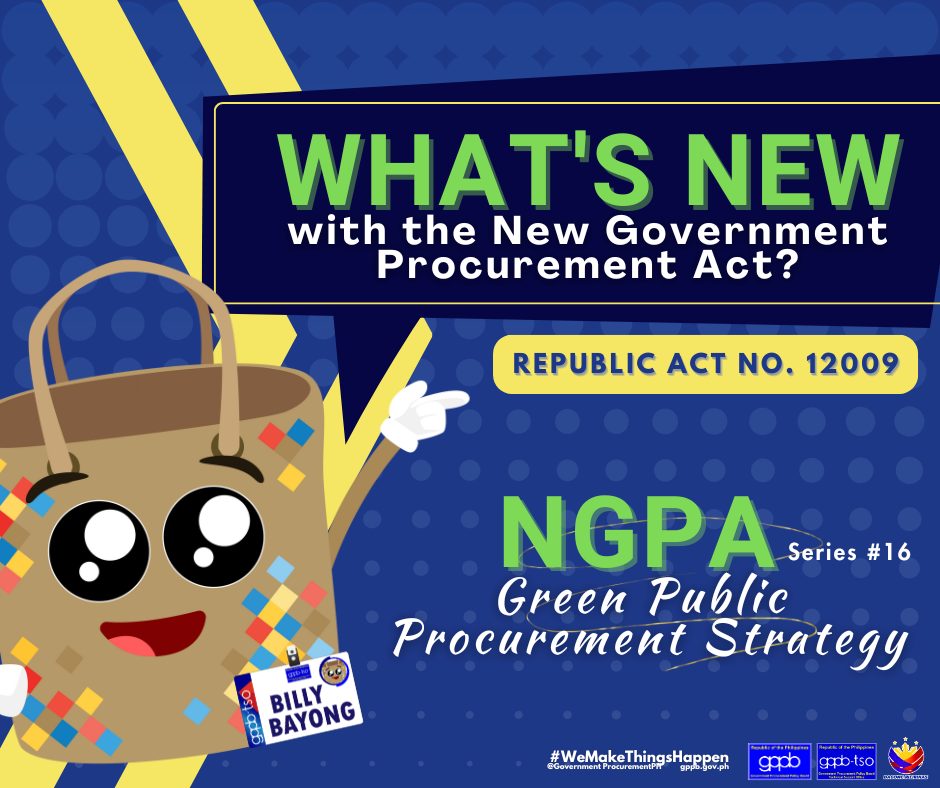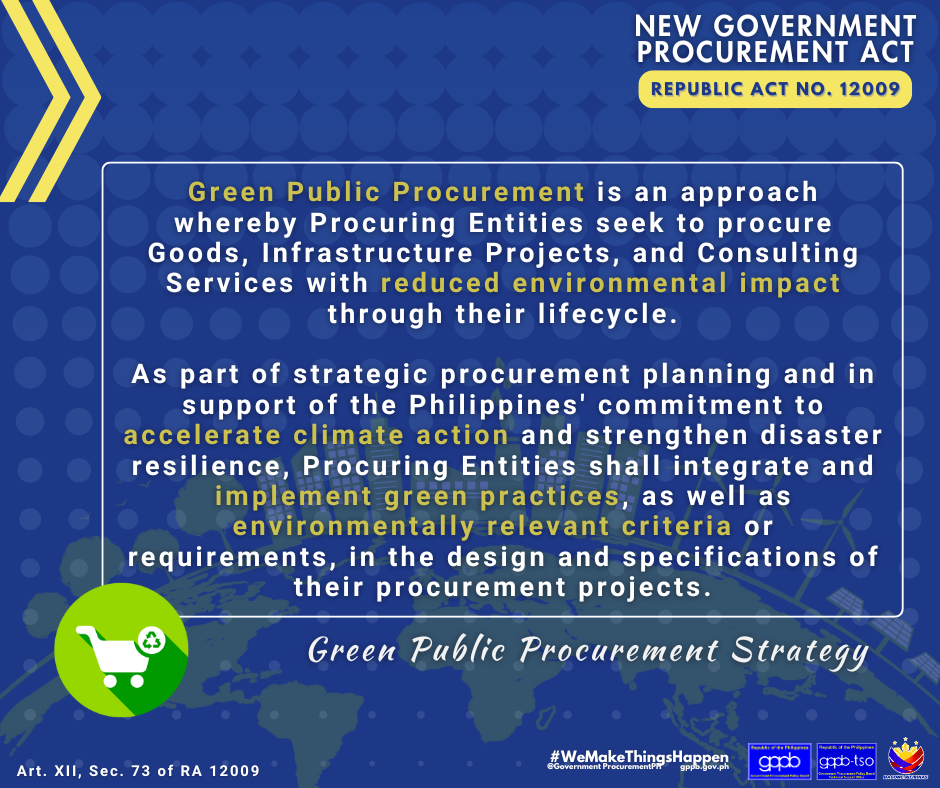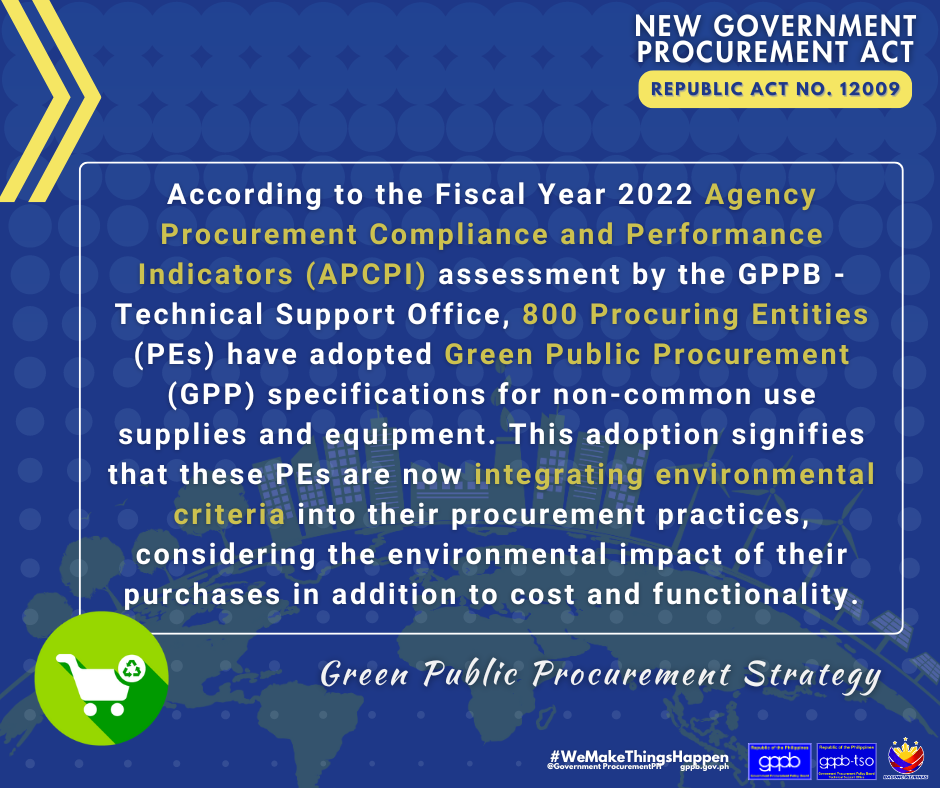


The Government Procurement Policy Board (GPPB), through Resolution No. 25-2017, adopted the Philippine Green Public Procurement (GPP) Roadmap and technical specifications for prioritized common-use and non-common-use supplies and equipment. This resolution aims to mainstream GPP in government procurement, ensuring that environmental criteria are considered in government spending. By 2021, the TSO was on a mission to upscale GPP implementation, overcoming barriers that prevented procuring entities from fully harnessing procurement’s transformative potential.
Through its active monitoring efforts, the Office noted through the 2018-2022 Agency Procurement Compliance and Performance assessment reports a gradual increase in the adoption of green specifications in the procurement of non-common use supplies and equipment. From 26% Procuring Entities considering the environmental impact of their procurement projects rather than solely focusing on cost or functionality in 2018 to 90.91% in 2022!
This momentum was further fueled by the 2022 UNEP assessment, which commended the Philippines for its highest rating for SPP monitoring efforts. Building on these successes, the GPPB’s approval of Resolution No. 19-2023 marks a pivotal moment, introducing mandatory green specifications for seven broad product categories of non-CSEs. This initiative is a game-changer, paving the way for a more sustainable and flexible procurement system across the nation.
Incorporating GPP policies into government procurement processes can significantly benefit both the environment and the economy. Thus, the New Government Procurement Act (NGPA) or Republic Act No. 12009 institutionalizes the implementation of GPP in government procurement in the Philippines.
Section 73 of the NGPA introduces GPP as one of its strategic procurement planning approaches. In support of the Philippines’ commitment to accelerate climate action and strengthen disaster resilience, procuring entities shall integrate and implement green practices, as well as environmentally relevant criteria or requirements, in the design and specifications of their procurement projects. The NGPA promotes greater weight in evaluating proposals with green specifications.
The GPP under NGPA is designed to achieve the following objectives:
Environmental Sustainability: NGPA encourages Procuring Entities to purchase goods and services that have a reduced environmental impact. This includes products that are energy-efficient, made from recycled materials, or have a lower carbon footprint. By prioritizing these products, PEs can help reduce greenhouse gas emissions and promote sustainable practices.
Economic Efficiency: Implementing GPP can lead to long-term cost savings for the government. For example, electronic or information communication technology energy-efficient products may have higher investment costs but result in lower operational and maintenance expenses over time.
Market Transformation: By adopting GPP, PEs can drive market demand for green products and services. This can stimulate innovation and encourage businesses to develop more sustainable solutions, ultimately leading to a greener economy.
Health and Social Benefits: GPP can also contribute to improving our country’s public health by reducing pollution and promoting the use of non-toxic materials. It will also support fair labor practices and local sourcing, which can have positive social impacts.
Let’s work together towards a sustainable future by supporting NGPA’s Green Public Procurement!
Stay tuned for more of NGPA’s sustainable public procurement.


